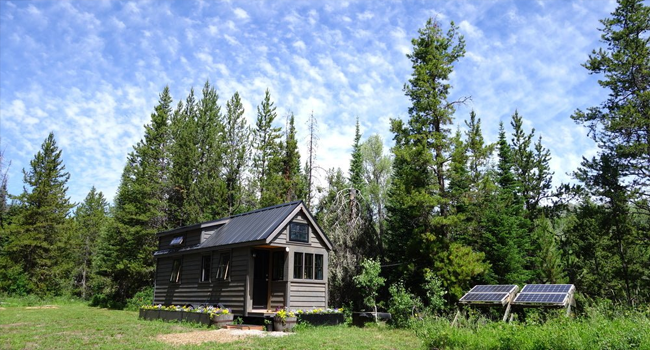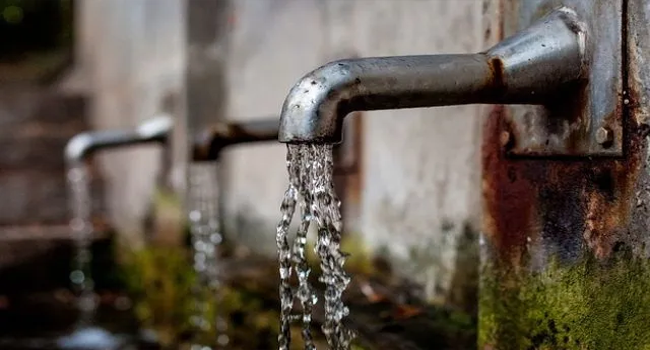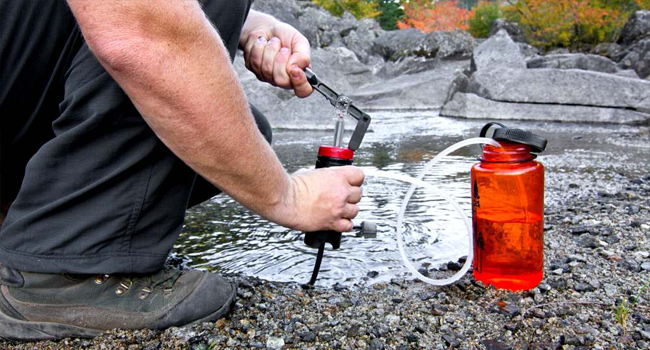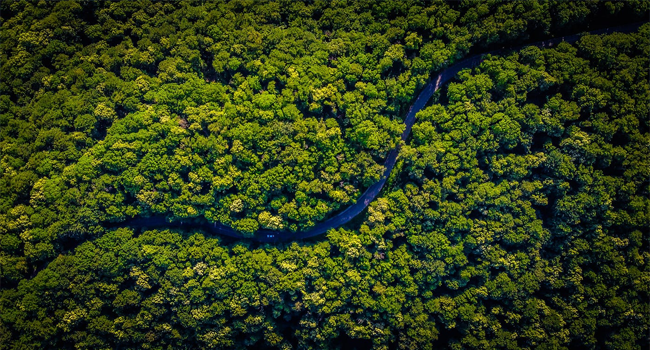
Living off the grid and embracing an eco-friendly lifestyle involves a unique set of competencies beyond traditional existence. It’s not just about disconnecting from the mainstream strength grid; it is a holistic approach to sustainable living encompassing numerous components of everyday lifestyles. In exploring eco-friendly living and the vital competencies for thriving off the grid, we will delve into areas which include power independence, sustainable meal resources, water conservation, and waste reduction.
1. Energy Independence:
One of the fundamental pillars of off-grid living is power independence. Generating your energy reduces your carbon footprint and embodies a more sustainable lifestyle. Solar panels, windmills, and hydroelectric systems are famous alternatives for harnessing renewable power. Learning to set up and keep those systems is essential for off-grid dwellings.
Solar panels, for instance, require expertise in daylight exposure, battery garages, and green electricity use. Knowing how to deploy, troubleshoot, and improve those systems guarantees a dependable and continuous power supply.
2. Sustainable Food Sources:
Growing your meals is a key thing of off-grid dwelling. Cultivating a vegetable garden, raising chickens or other small cattle, and practising permaculture techniques contribute to a sustainable and self-enough lifestyle. Understanding soil health, crop rotation, and companion planting is essential for successful off-grid gardening.
Additionally, knowing approximately opportunity food protection techniques and canning, drying, and fermenting guarantees a yr-spherical supply of nutritious meals. Mastering those strategies minimizes reliance on grocery stores and reduces the environmental effect of food transportation.
3. Water Conservation:
Off-grid living regularly means relying on opportunity water resources, wells, rainwater harvesting, or natural springs. Efficient water control is vital for sustainable dwellings. Skills like water filtration, purification, and garage are critical for retaining an easy and dependable water supply.
Learning approximately water-green appliances, rainwater collection systems, and water conservation practices minimizes water usage and promotes accountable stewardship of this precious, useful resource. These competencies are not handiest sensible for off-grid living but also contribute to environmental sustainability’s wider purpose.
4. Waste Reduction and Recycling:
Living off the grid encourages a minimalistic and waste-conscious lifestyle. Learning to lessen, reuse, and recycle is not just a trend but a need. Composting natural waste, repurposing materials, and creatively remodelling discarded items into beneficial resources are treasured abilities in off-grid living.
Understanding the concepts of a circular economy and practising responsible waste disposal prevents environmental degradation. It also fosters an attitude of resourcefulness, wherein each object can make multiple uses before quitting its lifecycle.
5. Shelter and Construction:
Building and keeping a sustainable and electricity-green home is a key skill for thriving off the grid. Constructing eco-friendly dwellings using herbal materials, such as straw bales, cob, or reclaimed wood, reduces the environmental effect of the building procedure. Knowledge of passive sun design, proper insulation, and green heating and cooling strategies ensures a comfortable dwelling without immoderate strength intake.
6. Permaculture and Sustainable Land Management:
Permaculture is a layout machine that integrates numerous factors of a sustainable ecosystem. Learning permaculture principles enables off-grid fanatics to create harmonious and resilient landscapes. This consists of designing food forests, enforcing water catchment systems, and fostering biodiversity.
Understanding sustainable land control practices, which include rotational grazing and agroforestry, promotes soil fitness and conservation. These practices no longer contribute to a thriving off-grid abode but also help the broader aim of regenerative agriculture and environmental stewardship.
7. Emergency Preparedness:
Living off the grid frequently means being more self-reliant in emergency conditions. Developing competencies in first resource, simple survival techniques, and emergency communique guarantees that you may handle unexpected, demanding situations. Knowledge of neighbourhood plants and fauna and simple navigation skills provide an additional layer of preparedness for off-grid living.
8. Community Building:
While off-grid dwelling regularly emphasizes independence, constructing a supportive community is essential. Connecting with like-minded people fosters know-how-sharing, collaboration, and a sense of protection. Skills in effective communique, war decisions, and network employers contribute to an off-grid community’s overall success and resilience.
9. Renewable Energy Systems Maintenance:
Successfully implementing renewable electricity structures is just the beginning. Maintaining those systems is an ongoing venture that requires technical understanding and troubleshooting talents. Regular tests, cleansing sun panels, and tracking strength storage systems ensure the longevity and efficiency of your off-grid energy setup. Being able to pick out and deal with problems promptly is crucial for uninterrupted strength and independence.
10. Off-Grid Communication:
Living off the grid frequently approaches far-flung locations wherein conventional communique methods are limited. Developing abilities in alternative verbal exchange strategies, consisting of radio verbal exchange or satellite communique, guarantees that you can stay linked with the outdoor world in emergencies. Understanding how to set up and operate oral exchange devices further protects your off-grid way of life.
11. Financial Management:
Off-grid dwellings also require a shift in economic behaviour. Learning to finance effectively, prioritize spending on important sources, and navigate the fees associated with a sustainable home is critical. This consists of know-how and the long-term financial advantages of investments in renewable strength systems, water infrastructure, and food manufacturing. Financial literacy empowers off-grid fanatics to make knowledgeable choices that align with their eco-friendly lifestyle.
12. Weather and Environmental Awareness:
Living off the grid calls for a heightened consciousness of the surrounding environment. Understanding nearby climate patterns, seasonal adjustments, and environmental dangers is essential for planning and selection. This information contributes to effective energy management, crop-making programs, and typical protection in off-grid locations.
13. DIY Repair and Maintenance:
Off-grid living regularly approaches being self-sufficient in many factors of lifestyles. Developing do-it-yourself (DIY) repair and maintenance capabilities is useful. Whether solving a leaky roof, repairing gear and system, or troubleshooting troubles with renewable electricity structures, the potential to address simple maintenance reduces dependence on external offerings and promotes a self-reliant lifestyle.
14. Sustainable Transportation:
Incorporating sustainable transportation strategies into off-grid living is another essential talent. This might also include using electric or hybrid vehicles, bicycles, or even traditional methods, which include horse-drawn carts. Understanding the ideas of eco-friendly transportation reduces the carbon footprint associated with tours and contributes to a greater sustainable off-grid lifestyle.
15. Ethical Foraging and Hunting:
Sourcing meals from the encompassing environment is frequently part of the lifestyle for those living off-the-grid lifestyles. Developing moral foraging and hunting skills guarantees that you may achieve meals sustainably without negatively impacting local ecosystems. Understanding the concepts of accountable harvesting, seasonal availability, and neighbourhood rules promotes a harmonious relationship with nature.
16. Mindfulness and Mental Well-being:
Living off the grid can be a transformative and profitable level, but it also comes with its own set of demanding situations. Developing mindfulness practices, meditation, and stress control techniques are essential for retaining intellectual well-being. Building resilience and a wonderful attitude contributes to the overall fulfilment and pride of the off-grid lifestyle.
17. Alternative Medicine and Herbalism:
Living off the grid frequently means being greater self-reliant about healthcare. Learning about alternative medicinal drugs, herbal treatments, and simple, useful resources using herbal resources enhances your ability to cope with common fitness problems. Understanding the medicinal properties of local vegetation and herbs contributes to a holistic proper-being method.
18. Water Harvesting and Storage Techniques:
In addition to water conservation, knowledge of water harvesting and storage techniques is essential. This consists of know-how in building rainwater harvesting systems, developing powerful storage solutions, and imposing water purification techniques. Efficient water management guarantees sustainable and dependable water delivery for various wishes on an off-grid domicile.
19. Navigational Skills:
Living in faraway locations may require navigating via difficult terrains. Developing fundamental navigational abilities using maps, compasses, and, if important, GPS devices is crucial. Whether exploring the wasteland or finding your way again domestically, those skills decorate your potential to adequately navigate and discover the encompassing environment.
20. Renewable Heating and Cooling Systems:
Maintaining snug residing surroundings in all seasons is vital for off-grid residing. Learning about renewable heating and cooling structures, passive solar layout, thermal mass, and green wooden-burning stoves ensures a sustainable and electricity-efficient method for temperature manipulation. These abilities contribute to a cosy and environmentally pleasant domestic.
21. Greywater Management:
Managing family greywater—water used in home sports like bathing and washing—is a key skill for off-grid residing. Learning to recycle and reuse greywater for irrigation and other functions minimizes water wastage and contributes to a more sustainable water cycle in your house.
22. Disaster Preparedness:
Beyond emergency preparedness, expertise in disaster-precise preparedness is crucial. This involves understanding how to handle herbal failures like wildfires, floods, or earthquakes. Developing evacuation plans, securing essential components, and having a nicely-thought-out emergency approach enhances resilience in unexpected challenges.
23. Responsible Livestock Management:
For those incorporating livestock into their off-grid lifestyle, accountable control is critical. Learning approximately animal farming, rotational grazing, and the moral remedy of animals ensures the well-being of your cattle and contributes to a sustainable and humane technique for food production.
24. Alternative Education and Skill Sharing:
Off-grid dwelling often includes homeschooling or alternative training for children. Developing capabilities in teaching, growing a curriculum, and fostering a love for mastering in a non-conventional setting is vital. Additionally, participating in talent-sharing in the community strengthens the collective understanding base and promotes a way of life of lifelong mastering.
25. Legal and Regulatory Knowledge:
Understanding nearby policies, zoning legal guidelines, and land-use policies is important for navigating prison elements of off-grid living. Knowledge of asset rights, building codes, and environmental rules guarantees that your off-grid way of life aligns with felony requirements and minimizes capacity conflicts with authorities.
Ultimately, thriving off the grid and embracing an eco-friendly lifestyle requires numerous competencies that enlarge past conventional practices. From harnessing renewable electricity to cultivating sustainable meals, every issue of off-grid living is an opportunity to lessen environmental effects and stay in harmony with nature. As people and groups continue to discover and undertake those important talents, the direction to a more sustainable and resilient destiny becomes clearer.






